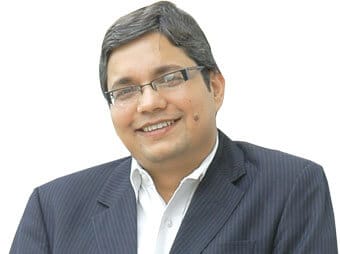
In sheer numbers and diversity, India is home to one of the largest higher education systems in the world. The possibilities seem great for higher education institutes in the country that are charged with equipping our graduates to compete in today’s knowledge based society. Distance education, cutting edge learning-management systems and the prospect of collaborating with important institutions from other parts of the world are just some of the transformational benefits that public and private universities in the country have started embracing.
 However, significant challenges also loom. Some of these challenges have to do with issues related to management and regulation. The most major challenge before us is to bring equity in the quality of education that is available across the country. The idea of quality education is more close to the heart of students in rural, semi-urban and urban areas, as they are also eager to become stakeholders in the ongoing economic revolution in the country. A large number of additional students are knocking at the doors of our educational institutions. The system must grow at a rapid pace in order to cater to the educational needvs of these students.
However, significant challenges also loom. Some of these challenges have to do with issues related to management and regulation. The most major challenge before us is to bring equity in the quality of education that is available across the country. The idea of quality education is more close to the heart of students in rural, semi-urban and urban areas, as they are also eager to become stakeholders in the ongoing economic revolution in the country. A large number of additional students are knocking at the doors of our educational institutions. The system must grow at a rapid pace in order to cater to the educational needvs of these students.
Most Indian universities have imbibed new solutions from ICT to bring improvements in the nature and the scope of their educational and administrative facilities. The logic behind the use of high-end technology is that such solutions allow students to become more engaged in constructing their own knowledge, and cognitive studies show that ability is the key to learning success. But technology can also be an expensive proposition. At times, faculty members, who are used to teaching in one way, might be averse to learning new methods.
In this issue of digitalLEARNING, we have interacted with many leading stakeholders of the higher education space. The idea behind these interactions is to present a view of the higher education sector as it exists today; we take a look at the achievements and also the issues that require our urgent attention. We have also conducted a research on the Right to Education bill. Every educator is in favour of contributing his mite to the achievement of India’s educational goals, but there are also some concerns being expressed. We present a complete picture.
The World Education Summit is scheduled for 23rd and 24th July 2012, at Le Méridien, New Delhi. This issue of digitalLEARNING is a part of the special series through which we are making in depth coverage of the education sector in the country. I invite all of you to become part of the WES and participate in the discussion on the best ways of bringing landmark improvements our education space.
Professor S S Mantha, Chairman AICTE has kindly consented to be guest editor of the entire series of issues that will be released in the run up to the World Education Summit. Along with the May issue, he will also be the Guest Editor for June, July and August issues of digitalLEARNING. I would like to thank him for the invaluable guidance that he is providing in creation of these special issues of digitalLEARNING that feature in depth analysis of the education sector in the country.






















